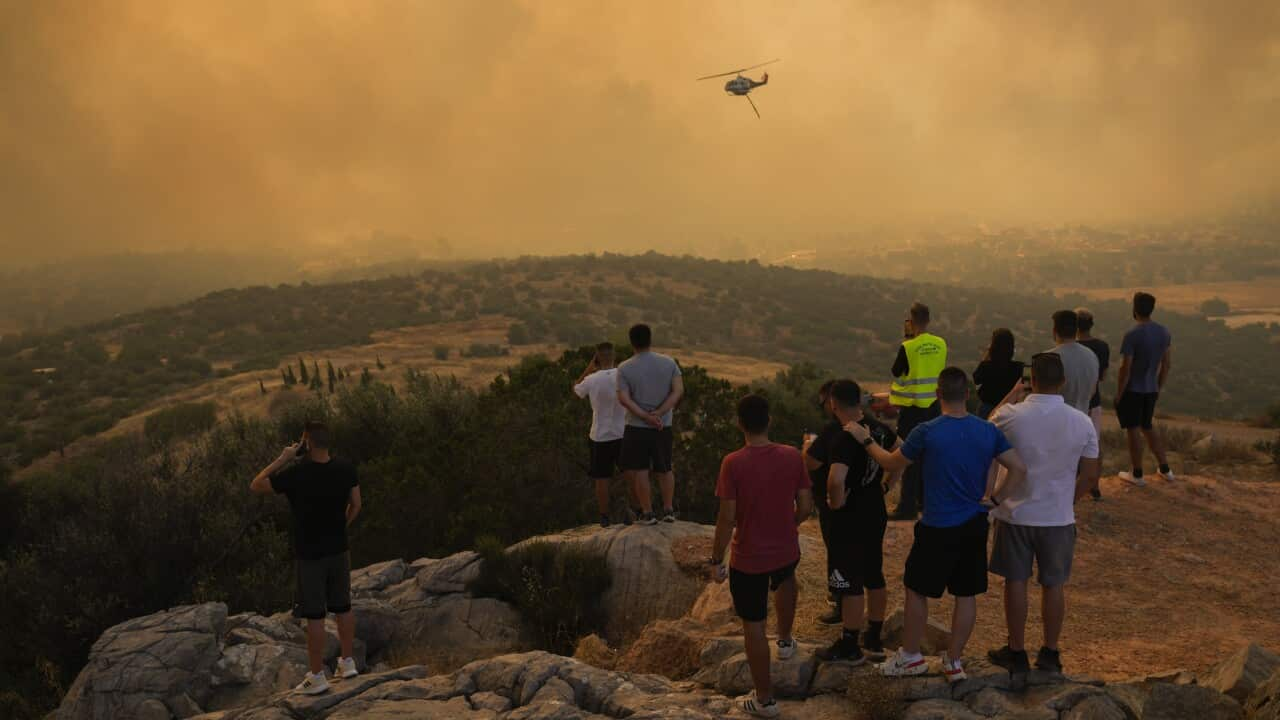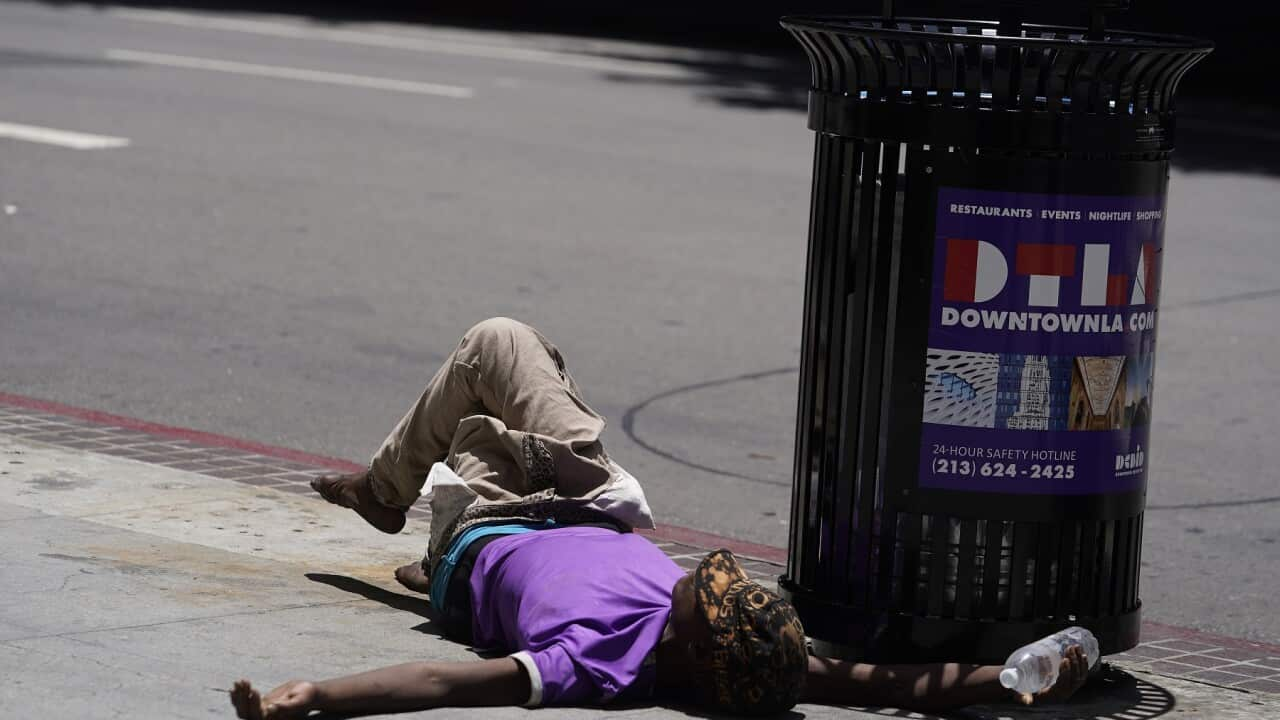Key Points
- Heatwaves have intensified in Europe, Asia and the US.
- Wildfires are raging in Europe and the US.
- The WHO has warned people are at an increased risk of death due to extreme heat.
Heatwaves have intensified across southern and eastern Europe, Asia and much of the United States as the World Meteorological Organisation warned of an increased risk of deaths due to the extreme weather.
The World Health Organization's regional director for Europe, Hans Kluge, said the world must look ahead while adapting to the "new reality" of killer heatwaves and other extreme weather.
Record-breaking temperatures
"There is a desperate and urgent need for regional and global action to effectively tackle the climate crisis, which poses an existential threat to the human race," he said.
Across the United States, people grappled with a medley of extreme weather, from blazing heat to wildfire smoke-choked air and flood warnings, with a tropical storm headed for the Pacific island state of Hawaii on Tuesday afternoon.
Nearly 61,000 heatwave deaths
On Tuesday, temperatures in the southwestern city of Phoenix, Arizona, exceeded 43C for the 19th day in a row, breaking an all-time record.
Meanwhile, in the northeastern state of Vermont, thunderstorms were expected to drench areas already saturated from recent torrential rainfall, and potentially cause more floods like the ones that overwhelmed roadways and trapped people in their homes last week.
The Mediterranean island of Sardinia could face highs of more than 47C and forecasters said temperatures could hit 40C in several Italian cities including 42-43C in the Lazio region that includes Rome.
With baking temperatures hitting Europe during the peak summer tourist season, the World Meteorological Organisation (WMO) said the heatwave in the northern hemisphere was set to intensify.
An estimated 61,000 people may have died in heatwaves last year in Europe alone.
The European Union's emergency response coordination centre issued red alerts for high temperatures for most of Italy, northeastern Spain, Croatia, Serbia, southern Bosnia and Montenegro.
Need for climate cooperation
Heatwaves this summer have coincided with wildfires from Greece to the Swiss Alps and deadly flooding in India and South Korea.
They have added fresh urgency to talks this week between the United States and China, the world's top greenhouse gas emitters.
US climate envoy John Kerry met Chinese officials in Beijing and expressed hope that climate cooperation could redefine troubled ties between the two powers.
Chinese President Xi Jinping stressed the country's commitment to carbon neutrality and a CO2 peak was certain but that it would not be influenced by others.
"Temperatures in North America, Asia, and across North Africa and the Mediterranean will be above 40C for a prolonged number of days this week as the heatwave intensifies," the WMO said.
Increased risk of heart attacks
Overnight minimum temperatures were also expected to reach new highs, the WMO said, creating the risk of increased cases of heart attacks and deaths.
"Whilst most of the attention focuses on daytime maximum temperatures, it is the overnight temperatures which have the biggest health risks, especially for vulnerable populations," it said.
Scientists have long warned that climate change, caused by greenhouse gas emissions mainly from burning fossil fuels, will make heatwaves more frequent, severe and deadly.
They say governments need to take drastically reduce emissions to prevent climate catastrophe.
The EU's Copernicus Climate Change Service says 2022 and 2021 were the continent's hottest summers on record.
Europe's highest recorded temperature of 48.8C was registered in Sicily two years ago.













